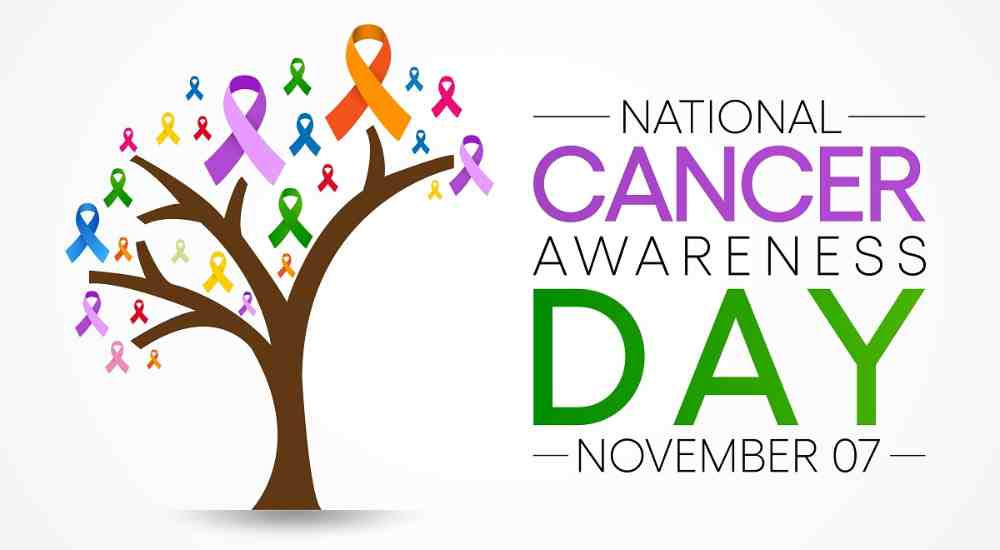National Cancer Awareness Day in India, observed every year on November 7, serves as a solemn reminder of the ongoing battle against one of the world’s most insidious foes—cancer. In a country where nearly 1.1 million new cases are reported annually, this day carries profound significance. It stands as a beacon of hope, a call to action, and a promise to save lives.
Cancer, a disease that knows no boundaries, indiscriminately affects individuals across age, gender, and socioeconomic status. It’s a silent assassin, often striking when least expected. National Cancer Awareness Day exists to shed light on the importance of early detection and prevention.
The statistics in India are undeniably alarming. Two-thirds of cancer cases are diagnosed at advanced stages, drastically reducing the chances of survival. The impact is felt across the nation, where preventable factors account for a staggering 70% of cancer cases, including 40% related to tobacco use, 20% due to infections, and 10% attributed to various other factors. Additionally, every eight minutes, a woman succumbs to cervical cancer in India, highlighting the urgent need for awareness and early detection.
On this National Cancer Awareness Day, we embark on a journey to confront these sobering facts and empower ourselves and our communities. Together, we will unravel the story of this critical day, understand the role of early detection in saving lives, and explore the initiatives to combat this deadly disease. It is a day when we unite to fight, when knowledge becomes our greatest weapon, and when hope takes the forefront in the battle against cancer.
History of National Cancer Awareness Day
In 2014, a significant milestone in India’s fight against cancer was achieved with the initiation of National Cancer Awareness Day. The driving force behind this pivotal day was Dr. Harsh Vardhan, the Union Minister of Health and Family Welfare.
With a vision to tackle the rising cancer epidemic in the country, Dr. Harsh Vardhan declared that November 7 would be observed as National Cancer Awareness Day every year. This date was carefully chosen to coincide with the birth anniversary of the remarkable scientist Madame Curie, whose contributions to the field of radiotherapy and nuclear energy had a profound impact on cancer treatment.
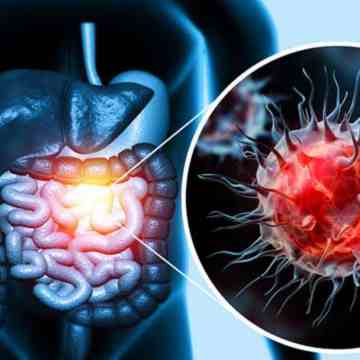
The initiative’s goals are multifaceted, reflecting the urgency of the situation. Foremost among them is the promotion of early detection. By emphasizing the significance of detecting cancer in its initial stages, National Cancer Awareness Day seeks to increase survival rates and reduce the economic burden on patients. When cancer is diagnosed early, treatment costs are significantly lower, and the chances of a successful recovery are substantially higher.
Another vital aspect of this initiative is the endeavour to discourage cancer-causing lifestyles. It’s a call to action for individuals to be proactive in minimizing the risk factors that contribute to the development of cancer. The use of tobacco, whether smoked or smokeless, remains a primary culprit, accounting for a substantial number of cancer-related deaths in India. The day aims to educate the public about the risks associated with tobacco use, alcohol consumption, and other harmful habits, empowering them to make informed choices about their health and well-being.
Furthermore, the National Cancer Control Programme is pivotal in this comprehensive approach to combating cancer. Launched in 1975, this program was originally aimed at providing cancer treatment facilities nationwide. However, in 1984-85, it underwent a significant transformation. The focus shifted towards prevention and early detection of cancer. This shift in priorities reflected a growing understanding that to tackle the cancer crisis effectively, one must address not only the cure but also the prevention and early identification of the disease.
Through National Cancer Awareness Day, India is taking proactive steps to reduce the burden of cancer. It’s a day when the nation unites in a shared commitment to enhancing early detection, changing lifestyles, and ensuring access to cancer treatment facilities is widespread. This history provides the foundation for our collective efforts to create a healthier, cancer-aware India.
The Significance of Marie Curie’s Birth on November 7
National Cancer Awareness Day, observed annually on November 7, connects profoundly to the birth anniversary of a remarkable scientist whose legacy reverberates through the annals of medical history. This scientist is none other than Madame Marie Curie, whose contributions to science, particularly in the field of radiotherapy, have had a profound impact on the battle against cancer.
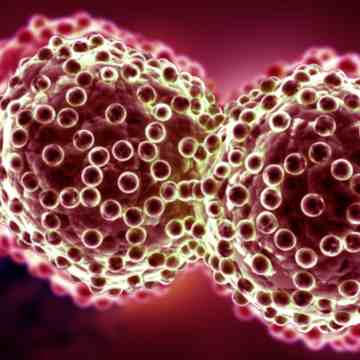
Marie Curie was born on November 7, 1867, in Warsaw, Poland. Her life’s work was characterized by groundbreaking discoveries, the most notable being her pioneering research on radioactivity. Her dedication to the scientific pursuit led to her discovery of radium and polonium, both of which were instrumental in developing radiotherapy for cancer treatment.
The connection between National Cancer Awareness Day and Marie Curie’s birthdate is not merely coincidental. It is a tribute to her indomitable spirit, her relentless pursuit of knowledge, and her immense contributions to the fight against cancer. As we commemorate her birth anniversary on this day, we remember her as a scientist whose work not only advanced our understanding of the physical world but also saved countless lives by revolutionizing cancer treatment.
Marie Curie’s legacy is celebrated on this day through various educational and awareness initiatives. Her life story is shared not only as a testament to the power of scientific inquiry but as an inspiration for future generations. Her remarkable achievements serve as a reminder of what can be accomplished when individuals dedicate themselves to the pursuit of knowledge and use that knowledge to combat some of humanity’s most pressing challenges.
Alarming Cancer Statistics in India
As we delve into the landscape of cancer in India, it becomes abundantly clear that this formidable adversary continues to impose a heavy burden on our nation. The most recent statistics reveal a sobering reality:
- Every year in India, nearly 1.1 million new cancer cases are reported, making it a significant public health concern.
- It is estimated that there are approximately 20 to 25 lakh cancer patients in India at any given point in time, with about 7 lakh new cases diagnosed annually.
However, what truly sets the stage for concern is how cancer is often detected and confronted in our country. Specific challenges persist, threatening the lives and well-being of many:
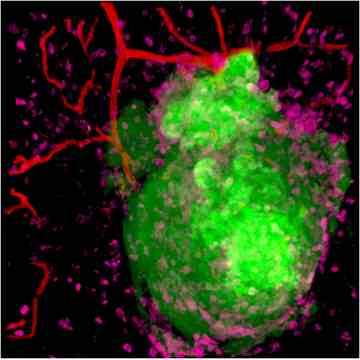
- Late-Stage Diagnosis: Alarmingly, two-thirds of cancer cases in India are diagnosed at advanced stages. This late-stage diagnosis is a grim precursor to diminished chances of survival. The reasons behind this late diagnosis include a lack of awareness, illiteracy, fear, and taboos surrounding the disease. This underscores the urgent need to increase awareness and early detection efforts.
- High Mortality Rates: Despite India having a lower cancer incidence compared to developed nations, the mortality rates are disproportionately high. This paradoxical situation is primarily due to late-stage diagnoses, which limit treatment options and lead to poorer outcomes. The implications for the affected individuals and their families are profound, highlighting the importance of early detection and prevention.
- Tobacco Use: A significant contributor to the cancer epidemic in India is the use of tobacco, both smoked and smokeless. In 2018, tobacco use accounted for a staggering number of deaths in both men and women, totalling 3,17,928. It remains one of the most potent risk factors for various types of cancer.
- Cervical Cancer: Cervical cancer is a significant concern in India, with one woman losing her battle with this disease every eight minutes. This alarming statistic underscores the importance of promoting awareness and early screening for cervical cancer, as it is highly treatable when detected in its early stages.
- Other Risk Factors: The impact of cancer in India extends beyond tobacco and cervical cancer. Unhealthy lifestyle choices, such as excessive alcohol consumption, drug use, and poor dietary habits, also contribute to the rising cancer burden. Unsafe sexual practices and air pollution further compound the risks.
The Importance of Early Detection
The cornerstone of battling cancer effectively lies in the timely detection of the disease. Early detection is not merely a concept; it is a lifeline, a beacon of hope for countless individuals facing the spectre of cancer. Let us delve into why early detection is of paramount importance:
Improving Cancer Survival Rates: Early detection is a game-changer regarding survival rates. When cancer is identified in its initial stages, treatment options are more effective, and the likelihood of a positive outcome significantly increases. Early detection can be the difference between life and death for many individuals.
Cost-Effectiveness: The economic burden of cancer is a weighty one, affecting both individuals and healthcare systems. However, treating cancer when it is in its early stages is not only more likely to succeed but also considerably more cost-effective. The cost of cancer treatment rises exponentially when the disease is diagnosed at an advanced stage. By participating in regular screenings and seeking medical attention at the first sign of symptoms, individuals can potentially save themselves and their families from not only the emotional but also the financial strain of cancer treatment.
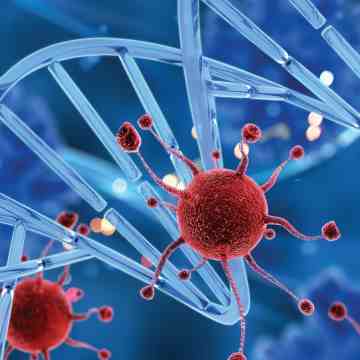
Cancer Screening Programs: Across various Indian cities, numerous cancer screening programs have been established to facilitate early detection. These programs offer a lifeline to those at risk. Cities like Ahmedabad, Bangalore, and Chennai have established comprehensive screening and detection services. By participating in these programs, individuals can proactively monitor their Health, ensuring that any potential cancerous growths are identified and addressed at the earliest possible stage.
It is incumbent upon each of us to be proactive in our approach to our Health. National Cancer Awareness Day serves as a reminder and an opportunity. It reminds us of the importance of early detection and empowers us to take control of our well-being. By participating in cancer screening programs and being vigilant about any signs or symptoms that may be indicative of cancer, we not only enhance our chances of survival but also contribute to the collective effort to reduce the burden of cancer in our society. Early detection is a powerful tool, and by using it wisely, we can save lives and create a healthier, cancer-aware India.
How to Observe National Cancer Awareness Day
National Cancer Awareness Day is not merely a date on the calendar; it is a call to action, a moment to make a difference, and an opportunity to contribute to the fight against cancer. Here are practical steps for individuals to observe this day effectively:
- Get Screened for Cancer: One of the most impactful ways to observe National Cancer Awareness Day is to take charge of your Health. Schedule an appointment for a cancer screening. Many cities across India offer these services, making them accessible to many people. Whether it’s a breast cancer screening, cervical cancer screening, or general cancer check-up, early detection can save lives.
- Inform Friends and Family: Awareness is a collective effort, and your family and friends play a vital role in this endeavour. Share information about the importance of early detection, the availability of screening programs, and the need to lead a healthy lifestyle. By informing your loved ones, you empower them to take charge of their Health and potentially save lives.
- Promote Information Booklets: Information is a powerful tool. Look for information booklets and online resources that provide insights into cancer prevention, early detection, and lifestyle changes. Distribute these booklets within your community, schools, workplaces, and healthcare centres. By equipping people with knowledge, you contribute to building a society better prepared to face the challenges of cancer.
- Participate in Awareness Campaigns: National Cancer Awareness Day sees a multitude of awareness campaigns, seminars, and events held nationwide. Participate in these events to not only educate yourself but also to become a part of the movement against cancer. Your involvement can inspire others to take action and make a difference.
- Support Non-Profit Organizations: Many non-profit organizations tirelessly work to raise awareness, support cancer patients, and fund research. Consider supporting these organizations through donations or volunteering your time. Your contribution can directly impact the fight against cancer.
- Make Healthy Lifestyle Choices: Prevention is always better than cure. Take this day as a starting point for making healthier lifestyle choices. Avoid tobacco, maintain a healthy diet, exercise regularly, and prioritize your overall well-being. By adopting a healthy lifestyle, you not only reduce your own risk of cancer but also set an example for others to follow.
5 Interesting Facts About Cancer Awareness
Cancer is a multifaceted challenge with various facets that demand our attention. Here are five interesting facts about cancer awareness that underscore its significance:
Preventable Factors Dominate: In India, it’s intriguing that 70% of cancer cases are linked to avoidable factors. Among these, 40% are associated with tobacco use, 20% with infections, and 10% with other elements. Understanding these preventable causes highlights the critical role of awareness and lifestyle changes in reducing the cancer burden.
Impact on Women in India: The effect of cancer on women in India is profound. Every eight minutes, one woman succumbs to cervical cancer. Additionally, for every two women newly diagnosed with breast cancer, one woman loses her battle with it. These statistics emphasize the urgent need for awareness and early screening for women’s Health, which can save lives.
High Death Rates: Globally, cancer claims approximately 9.6 million lives each year. In India, the share of this staggering number is around 8.17%. Despite a lower incidence of cancer compared to developed nations, the death rates in India are significantly higher. Late-stage diagnoses, coupled with challenges in access to healthcare, contribute to these high mortality rates.
Tobacco as a Significant Risk Factor: According to the Lancet report on cancer, India is the second-largest killer of cancer patients after heart disease. This report underscores that the use of tobacco is a risk factor for 14 types of cancer. As a significant risk factor, tobacco use remains a crucial area where awareness and behavioural changes can yield substantial benefits.
Lifestyle Changes are Crucial: Many lifestyle choices contribute to the risk of developing cancer. Besides tobacco use, other factors include excessive alcohol consumption, drug use, and poor dietary habits. Unsafe sexual practices are the primary risk factor for cervical cancer, the second most common cancer type in women. Awareness and informed lifestyle choices are pivotal in reducing the risk of these cancers.
Why National Cancer Awareness Day is Important
National Cancer Awareness Day is not just a date on the calendar; it is a pivotal moment in our collective efforts to combat cancer. It serves as a reminder, a catalyst for change, and an opportunity to make a real difference. Here’s why this day is of paramount importance:
Spreading Awareness: Cancer is a complex and often misunderstood disease. National Cancer Awareness Day is a platform for spreading vital information about cancer—its causes, risk factors, prevention, and early detection. This awareness empowers individuals to make informed choices about their Health and equips them to recognize the signs and symptoms of cancer.
The Need for Early Detection: Early detection is the linchpin in the battle against cancer. This day underscores the critical importance of identifying cancer in its initial stages. Timely diagnosis significantly improves the chances of successful treatment and long-term survival. By encouraging early detection, we reduce the emotional and financial burdens that cancer imposes.
Support for Women’s Health: National Cancer Awareness Day places a strong emphasis on women’s Health. It highlights the disproportionate impact of cancer on women, particularly cervical and breast cancers. By raising awareness, advocating for regular screenings, and promoting self-breast examinations, we actively work to save lives and enhance women’s well-being.
Lifestyle Changes: This day spotlights the lifestyle choices contributing to cancer risk. Unhealthy habits like tobacco use, excessive alcohol consumption, and poor dietary choices are significant risk factors. By making informed and healthier lifestyle choices, we can reduce our risk and inspire others to do the same.
Global Significance: Cancer is a global public health concern. The impact of this disease transcends borders, affecting millions of people worldwide. By addressing cancer as a public health issue, we contribute to a collective effort to reduce its burden on individuals, families, and healthcare systems worldwide. The knowledge and actions we share locally can have a far-reaching impact.
National Cancer Awareness Day Timeline
Critical events and milestones have marked National Cancer Awareness Day. Here’s a timeline that highlights the significant moments in the history of this crucial day:
September 2014: National Cancer Awareness Day was initiated by Dr. Harsh Vardhan, the Union Minister of Health and Family Welfare in India. He announced that November 7 would be observed as National Cancer Awareness Day every year, coinciding with the birth anniversary of Marie Curie.
1975: The National Cancer Control Programme was initiated to provide cancer treatment facilities across India. The primary focus at this time was on treatment.
1984-85: The National Cancer Control Programme underwent a significant transformation. The emphasis shifted towards prevention and early cancer detection, acknowledging that these aspects were equally vital in addressing the cancer crisis.
2014: Dr. Harsh Vardhan launched state-level cancer control programs, encouraging early detection and research into curing cancer. National Cancer Awareness Day has encouraged people to report to government hospitals, CGHS, and municipal clinics for free cancer screenings.
Present Day: National Cancer Awareness Day is observed annually on November 7. On this day, healthcare organizations, government agencies, and non-profit groups collaborate to organize awareness campaigns, seminars, and screenings to mark the occasion. The day is a reminder of the ongoing battle against cancer, the importance of early detection, and the need for lifestyle changes to combat this disease.
Preventive Measures for Cancer
Prevention is a powerful shield against cancer. Here are some essential preventive measures that individuals can adopt to reduce their cancer risk and lead healthier lives:
Avoiding Tobacco: The most significant, preventable cause of cancer is tobacco use. Whether smoked or smokeless, tobacco exposes individuals to a range of carcinogens that increase the risk of developing cancer. Avoiding tobacco in all forms is one of the most effective steps you can take to reduce your cancer risk.
Maintaining a Healthy Body Weight: Obesity is linked to an increased risk of several types of cancer, including breast, colorectal, and pancreatic cancer. Maintaining a healthy body weight through regular exercise and a balanced diet can significantly lower your risk.
Healthy Diet: A diet rich in fruits and vegetables, along with whole grains and lean proteins, can contribute to cancer prevention. Antioxidant-rich foods can help protect cells from damage that can lead to cancer. Reducing the consumption of processed and red meats is also advised.
Regular Physical Activity: Engaging in regular physical activity not only helps in maintaining a healthy body weight but also reduces the risk of cancer. Exercise has been linked to a lower risk of breast, colorectal, and other cancers.
Limit Alcohol Consumption: Excessive alcohol consumption is associated with an increased risk of various cancers, including mouth, throat, esophagus, liver, and breast cancer. Limiting alcohol intake or abstaining altogether can significantly reduce this risk.
Avoiding or Reducing Exposure to UV Radiation: Protecting your skin from harmful ultraviolet (UV) radiation by using sunscreen, wearing protective clothing, and avoiding indoor tanning beds can help reduce the risk of skin cancer.
Scheduling Cancer Screening Exams: Regular screening exams for various types of cancer, such as mammograms for breast cancer and Pap tests for cervical cancer, are vital for early detection. These screenings are often instrumental in identifying cancer in its earliest, most treatable stages.
Vaccination: Some vaccines can protect against cancer. For example, the HPV vaccine can significantly reduce the risk of cervical and other related cancers.
Safe Sex Practices: Practicing safe sex and reducing the number of sexual partners can lower the risk of sexually transmitted infections that are associated with cancer, such as human papillomavirus (HPV).
Stress Management: Chronic stress and a compromised immune system can potentially contribute to cancer risk. Managing stress through relaxation techniques, mindfulness, and other practices can help support overall Health.
Conclusion
In the tapestry of our lives, cancer is a formidable adversary, casting its shadow on countless individuals and families. National Cancer Awareness Day, observed every year on November 7, serves as a beacon of hope, an occasion for change, and a platform for collective action. As we conclude this journey through the landscape of cancer awareness, let us reflect on the key takeaways:
Early Detection is Key: The most potent weapon in our arsenal against cancer is early detection. It can significantly improve survival rates, reduce treatment costs, and spare individuals and their loved ones from the emotional and financial burdens of late-stage diagnosis.
Preventive Measures Matter: Prevention is a potent defence. Adopting a healthy lifestyle, avoiding tobacco, and taking advantage of regular screening exams are proactive steps that can reduce the risk of cancer. Awareness and informed choices can make a significant difference.
Women’s Health is a Priority: Women’s Health, particularly in the context of cervical and breast cancer, deserves our attention. National Cancer Awareness Day highlights the importance of supporting women’s Health, early screenings, and self-examinations.
Global Impact: Cancer is a global public health concern, and the efforts we make locally have far-reaching effects. By addressing cancer as a collective challenge, we contribute to the worldwide endeavour to reduce its burden.
In closing, National Cancer Awareness Day is a day of action, an opportunity to make a difference. It’s a call to take charge of your Health, to spread awareness, and to participate actively in the fight against cancer. Whether you get screened, inform your loved ones, support non-profit organizations, or simply adopt a healthier lifestyle, your actions matter. Together, we can reduce the burden of cancer, save lives, and create a society that is better equipped to confront this relentless adversary.
As we observe National Cancer Awareness Day, let us not only remember the challenges but also celebrate the triumphs and the potential for a future where cancer is no longer a prevalent threat. Your participation matters, and your commitment to this cause can change lives. Join the movement and be a part of the solution in the battle against cancer. Together, we can make a difference.
Call to Action
Now that you’ve journeyed through the landscape of cancer awareness and the significance of National Cancer Awareness Day, it’s time to take action. Here’s how you can make a real difference:
Share this Content: Spread the message of cancer awareness by sharing this content with your friends, family, and social networks. By sharing knowledge, you empower others to take charge of their Health.
Support Awareness Campaigns: Get involved in local and national cancer awareness campaigns. Attend seminars, screenings, and events to learn more and actively participate in this critical cause.
Encourage Early Detection: Advocate for early detection in your community. Share information on cancer screenings, the importance of self-exams, and the need for regular check-ups. Your voice can save lives.
Support Non-Profit Organizations: Many organizations are dedicated to cancer research, patient support, and awareness campaigns. Consider supporting these organizations through donations or volunteering your time.
Adopt a Healthy Lifestyle: Lead by example. Make healthy choices in your own life, avoid tobacco, maintain a balanced diet, and engage in regular physical activity. By demonstrating a healthy lifestyle, you inspire others to do the same.
Stay Informed: Keep yourself updated on the latest developments in cancer research and prevention. Knowledge is a powerful tool in the fight against cancer.
Be Proactive: Take the first step before someone else takes the first step. Be proactive in your approach to cancer prevention and awareness. Your actions, no matter how small, can make a profound impact.

